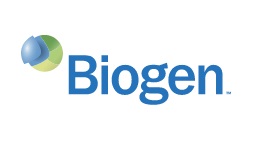Biogen Idec’s Rebranding Includes New Focus on ALS

 Massachusetts-based pharmaceutical company Biogen Idec Inc. has decided to rebrand the company with a shorter name and a new logo, as well as by refocusing its work and abandoning its near exclusivity to multiple sclerosis (MS) drugs to also include research on conditions such as amyotrophic lateral sclerosis (ALS). The announcement was made by the CEO of Biogen, George Scangos, during an exclusive interview with Reuters, during which he talked about the successes and failures of the pharmaceutical company.
Massachusetts-based pharmaceutical company Biogen Idec Inc. has decided to rebrand the company with a shorter name and a new logo, as well as by refocusing its work and abandoning its near exclusivity to multiple sclerosis (MS) drugs to also include research on conditions such as amyotrophic lateral sclerosis (ALS). The announcement was made by the CEO of Biogen, George Scangos, during an exclusive interview with Reuters, during which he talked about the successes and failures of the pharmaceutical company.
The company is committed to expanding its portfolio of drug development, and will continue working to improve the lives of patients with some of the most difficult to treat conditions. The first new focus of Biogen will be Alzheimer’s, which is already underway and is expected to set the foundations for research on ALS, spinal muscular atrophy (SMA) and other neurodegenerative conditions.
“Five years down the road, with some luck, we’ll have an Alzheimer’s drug that’s getting approved,” explained Scangos. “I hope we can transform the treatment of MS. By that time, we will have made substantial progress on ALS and other nerve degenerative diseases, spinal muscular atrophy in kids. All that stuff is on our plate. I am sure of two things. Not all of it is going to work, and some of it will.”
Biogen recently presented early but encouraging results from a clinical trial designed to evaluate an investigational drug for Alzheimer’s called aducanumab. “If the Alzheimer’s thing works, then we’re not just an MS company. We are broadly focused on neuro-degenerative diseases. The future looks pretty exciting for us,” stated Scangos, as Biogen is also studying a new drug for MS.
Regarding ALS, Biogen established in January a $30 million alliance with Columbia University Medical Center to conduct research on genetics and explore the underlying causes of the disease. The new partnership, which will be established at Columbia University along with a sequencing analysis facility and shared postdoctoral program, as well as expertise, mechanisms and pathways provided by Biogen, may help identify new treatments to address ALS.
However, the company will be working under the shadow of past setbacks, since they had already engaged in research to find a treatment for ALS, which was abandoned in 2013. During that time, Biogen was studying a drug called dexpramipexole that failed to improve the survival or quality of life of patients with ALS. In line with this, the company had also announced that they would wait a few years before conducting further studies, but would remain focused on finding a therapy for ALS.
In addition to the new drugs, the CEO also announced that Biogen would now invest in biosimilar drugs and would start producing cheaper versions of biotech drugs that already lost their patent protection. Biogen will collaborate with Samsung to develop six biosimilars. “We will expand that to include more. I view biosimilars as a good thing. When they come for our drugs, they come,” he said.
The company is now going to be called “Biogen” after over a decade of merging with Idec Pharmaceuticals, and will start using a new logo beginning March 30. Within three years, the company has quadrupled its market value to over $100 billion due to the production and commercialization of therapies for the treatment of multiple sclerosis, but is now determined to expand its reach.






